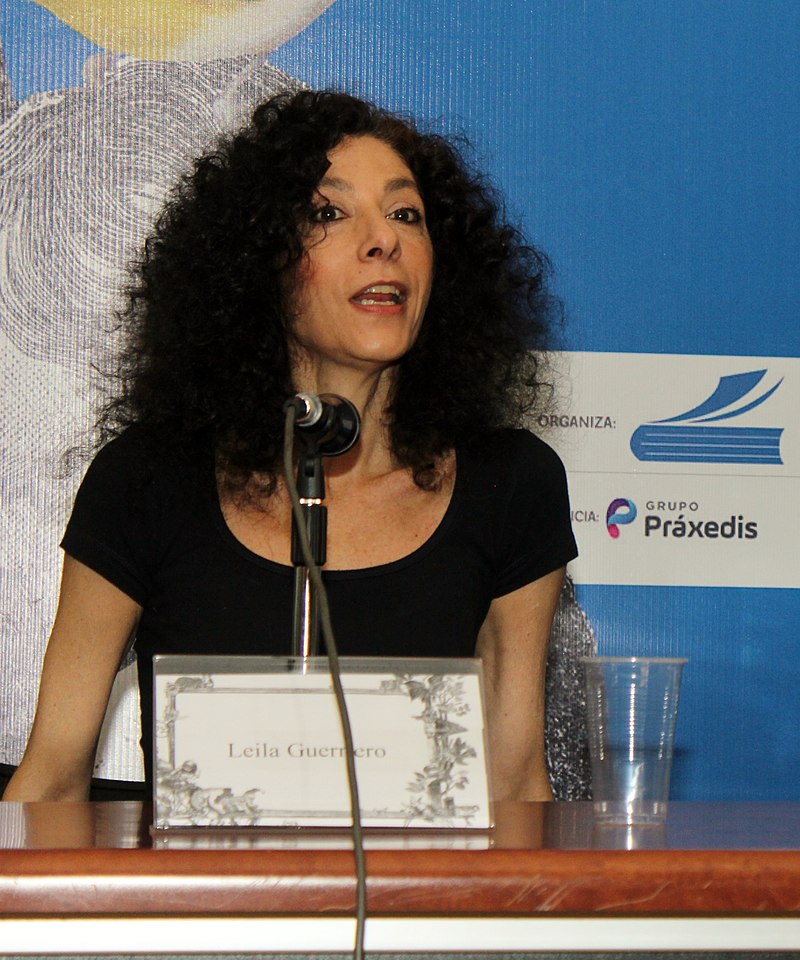
Leila Guerriero
Leila Guerriero is an Argentine journalist and writer born in 1967, renowned for her contributions to narrative journalism in Latin America. She has authored several acclaimed works of non-fiction, including 'La llamada.' Guerriero is celebrated for her engaging storytelling style and her ability to capture the essence of her subjects. Recently, she was honored at the International Festival of Letters in Bilbao, where she expressed gratitude for the recognition of non-fiction writing, stating that it often goes uncelebrated.
Born on Feb 01, 1974 (52 years old)
Global Media Ratings
Countries Mentioned
| Country | Mentions | Sentiment | Dominance | + Persistence | x Population | = Reach | x GDP (millions) | = Power |
|---|---|---|---|---|---|---|---|---|
| Spain | 2 | 7.50 | 0.18% | +0% | 46,754,778 | 84,091 | $1,400,000 | 2,518$ |
| Costa Rica | 1 | 8.00 | 0.09% | +0% | 5,094,118 | 4,548 | $62,000 | 55$ |
| Totals | 3 | 51,848,896 | 88,639 | $1,462,000 | 2,573$ |
Interactive World Map
Each country's color is based on "Mentions" from the table above.
Recent Mentions
 Costa Rica:
Leila Guerriero reflects on her childhood experience of reading a novel with prohibited pages.
8
Costa Rica:
Leila Guerriero reflects on her childhood experience of reading a novel with prohibited pages.
8
 Spain:
Leila Guerriero spoke about the importance of writing for a larger audience beyond her own country.
8
Spain:
Leila Guerriero spoke about the importance of writing for a larger audience beyond her own country.
8
 Spain:
Leila Guerriero is a Latin American writer participating in discussions about journalism.
7
Spain:
Leila Guerriero is a Latin American writer participating in discussions about journalism.
7
 Spain:
Leila Guerriero is among the distinguished authors featured in the anthology of Christmas stories.
8
Spain:
Leila Guerriero is among the distinguished authors featured in the anthology of Christmas stories.
8
 Colombia:
Leila Guerriero is a journalist participating in a special panel for El País's 50th anniversary.
8
Colombia:
Leila Guerriero is a journalist participating in a special panel for El País's 50th anniversary.
8
 France:
Leila Guerriero is the author of the book that recounts the story of Silvia Labayru.
8
France:
Leila Guerriero is the author of the book that recounts the story of Silvia Labayru.
8
 Uruguay:
Leila Guerriero was very important for the author in her career as a journalist.
9
Uruguay:
Leila Guerriero was very important for the author in her career as a journalist.
9
 Panama:
Leila Guerriero is an Argentine journalist who expresses concern about the impact of social media on personal judgment and idea exchange.
7
Panama:
Leila Guerriero is an Argentine journalist who expresses concern about the impact of social media on personal judgment and idea exchange.
7
 Spain:
Leila Guerriero wrote a book that portrays Silvia Labayru, a montonera who was kidnapped during the dictatorship.
6
Spain:
Leila Guerriero wrote a book that portrays Silvia Labayru, a montonera who was kidnapped during the dictatorship.
6
 Spain:
Leila Guerriero is a journalist and writer who publishes a weekly column in EL PAÍS.
9
Spain:
Leila Guerriero is a journalist and writer who publishes a weekly column in EL PAÍS.
9
